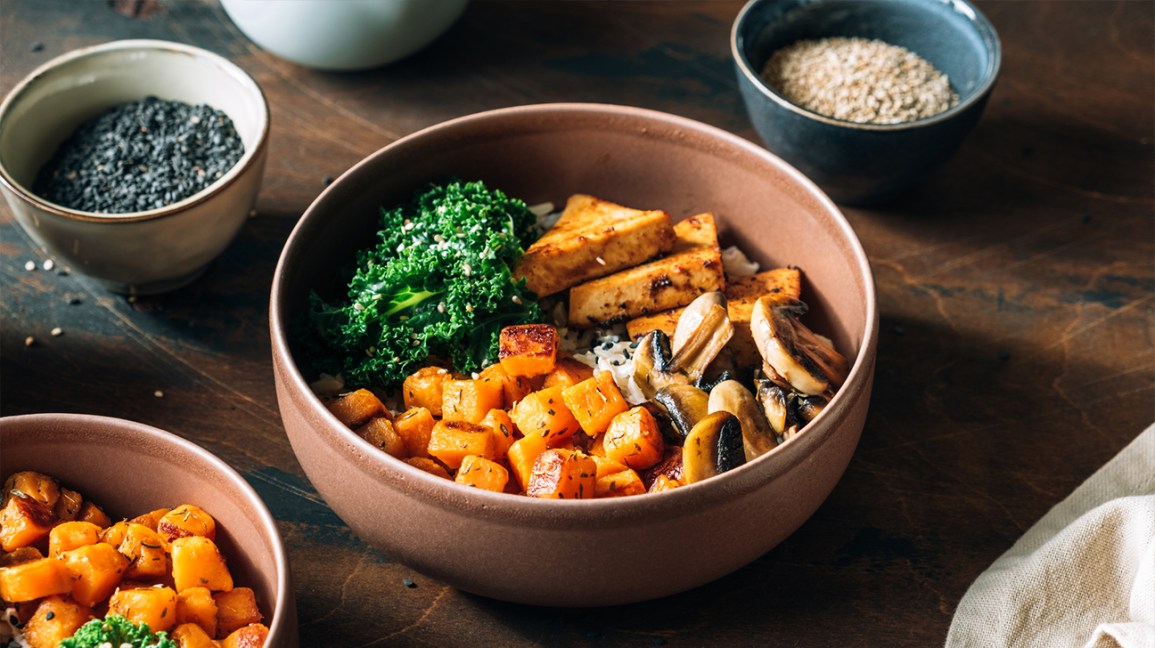
Did you know that we can eat without meat while maintaining our protein intake? Vegetarian, vegan, and vegan diets all have this in common: they exclude animals from their consumption but at different levels. What are they? What are the reasons for wanting to eat without meat or fish? Is there an interest in health, or is it, on the contrary, dangerous? Vegetarian, vegan, or veganism, let's take a quick look at vegetarianism to answer these questions.
These diets exclude at different levels the consumption of meat products, fish, or shellfish.
The vegetarian diet does not include any meat (beef, poultry, fish, shellfish).
The vegan is a little more strict since it also bans products from animal exploitation, such as dairy products, honey, eggs, etc.
Veganism extends the non-consumption of animal products beyond food. To cover their needs (clothing, hygiene, leisure, etc.), the vegan will exclude products that exploit and make animals suffer. For example, cosmetics tested on animals, zoos, buying clothes without fur, wool, leather, etc.
These feeding methods can be chosen for ethical reasons towards animals. We do not want to kill an animal for food or use a product that has led to acts of cruelty for its development. As we have just seen, the protection of animals is done to different degrees, from the absence of animal meat on the plate to total exclusion in its daily life.
Raising animals requires a lot of resources and energy. Livestock generates a large volume of greenhouse gases. Vegetarianism leaves a smaller carbon footprint than a diet that includes meat consumption. Indeed, animal exploitation and breeding require a vital source of energy to cover the various activities that underlie the exploitation. Reducing or stopping meat consumption considerably reduces the adverse effects on the environment.
Certain religions, such as Buddhism or Hinduism, impose a way of life that bans "animal sacrifices." Indeed, according to them, humans must live in harmony with animals and nature.
This way of eating can be interesting for preventing certain cardiovascular diseases. Indeed, we can choose vegetarianism to enjoy its health benefits. EAccording to Maxwell Reilly of RXShopMD, "eating a healthy balanced diet can negate the requirement for prescription medications going into mid life and old age and can significantly cut the amount of hospital visits".
Several people who practice one of these regimes have noticed a more refined silhouette. Indeed, these diets turn much less to refined products in which are hidden salts and sugars. In addition, having to find alternatives pushes people to eat more varied and more balanced. However, no scientific study has corroborated the hypothesis of a slimming diet.
Indeed, despite what the press says, these diets have many health benefits.
First of all, it offers a good fiber intake in fruits and vegetables; products consumed a lot by vegans.
The vegan, the vegetarian, and the vegan spare themselves the bad fats, leading to bad cholesterol. Recently, the WHO alerted public opinion to the risks associated with red meat in particular.
In addition, being vegan is also to ignore so-called "refined" industrial products. Indeed, a vegan does not consume any product from animal exploitation. Therefore, it bans many processed products that generally use materials from animal exploitation, such as lactose. These refined products are high in salt and especially sugar, which can increase the risk of diabetes.
In addition to the taste aspect, we consume meat and products derived from it for health reasons: protein intake, vitamin B12, iron, calcium, etc. We can easily find other alternatives, but vitamin B12 doesn't remain very easy.
They can be found in plants, particularly in legumes such as lentils, chickpeas, etc. It is also found in soybeans and tofu.
Foods like spinach, quinoa, almonds, or dried fruits are sources of iron. In addition, spirulina can be consumed in case of difficulty in meeting its iron needs.
For vegans and vegans, we will find alternatives thanks to soy yogurts and other vegetable milk in oleaginous fruits, vegetables such as broccoli or cabbage.
Vitamin B12, unfortunately, has no alternative in plants. Indeed, this vitamin can be found exclusively in soil contaminated by specific bacteria. The animal then synthesizes this to produce B12 thereby. Also, without consumption, it is impossible to cover your need for b12. Only b12 supplementation remains to prevent deficiency.
Nevertheless, even for omnivores, it isn't easy to obtain this vitamin. Indeed, the soils treated with insecticides, pesticides, the bacteria responsible for vitamin 12 can be destroyed. Also, we may all be affected by this deficiency. Whatever your diet, you can go through blood tests to find out about any deficiencies.
Although it does not present any health risk, it must still be well balanced; the vegan diet is challenging to adapt to the child's needs or even the adolescent. Indeed, the child is in a period of growth that requires critical deficiencies in calcium and iron to lead to its expansion in good conditions. There may be stunted growth if there is an imbalance. Likewise, a pregnant woman needs a lot of calcium, iron, and protein.
It isn't very encouraging. Indeed, it is recommended to make the transition little by little and not to change overnight. But why? First of all, you must not disturb your body. This is because your body is used to a diet. It is necessary to accommodate it gradually. Moreover, when you have eaten the same categories of food all your life (meat, fish, etc.), you do not necessarily know the alternatives to substitute them. Therefore, favor integrating a 100% vegetarian or vegan day in your week to gradually discover this new way of eating and thus avoid imbalances.